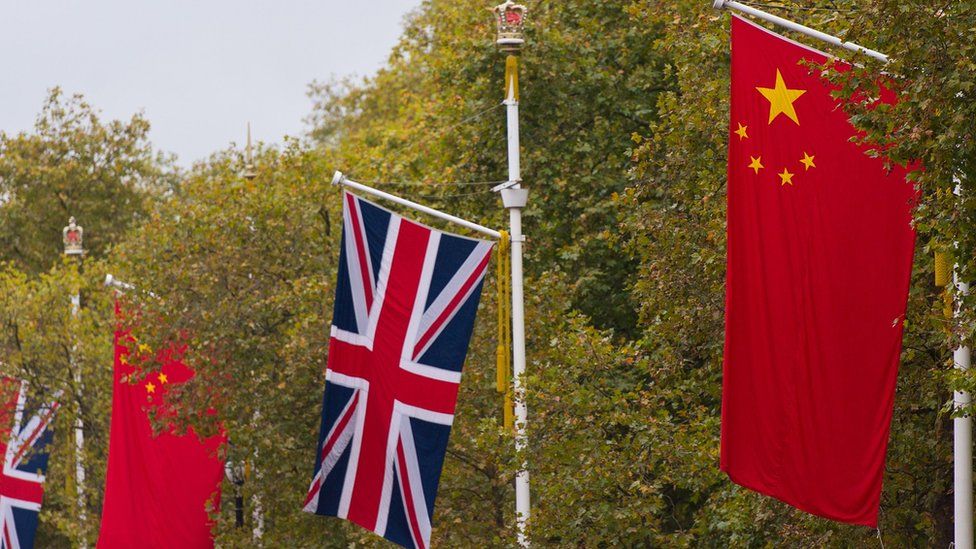ARTICLE AD BOX
 Image source, Getty Images
Image source, Getty Images
By Chris Mason
Political editor, BBC News
One of the biggest foreign policy dilemmas of our time is back. In truth, it never went away.
How should the UK deal with China?
I wrote about this last November, when Rishi Sunak made his first big speech about foreign policy as prime minister.
With the arrest of two people under the Official Secrets Act amid claims, reported in the Sunday Times, that a parliamentary researcher was spying for China, it is back in the news.
Within hours of the newspaper publishing its story, the prime minister was sitting across a table in Delhi with Chinese Premier Li Qiang, at the G20 summit.
It was, I understand, the first substantive issue raised in the discussion by Rishi Sunak, in a meeting lasting around 20 minutes and described by a source on the British side as "business-like".
Ministers want to attempt to convey that they can and will be candid and direct with the Chinese when necessary, but to do so the government has to talk to them - and do so more than has happened in the recent past.
The last decade of UK-China relations amount to a wild swing in the British government's instincts about Beijing.
From David Cameron taking Chinese President Xi Jinping for a pint at his local less than eight years ago, to relations heading into something approaching a deep freeze.
There hasn't been a substantive face-to-face meeting between President Xi and a UK prime minister for more than five years.
Rishi Sunak has attempted to gently warm things up.
Noisy Tory MPs
Ministers have an oft-repeated phrase they claim describes their approach: "clear eyed."
They don't want to appear naïve. But there is a noisy collection of well-connected Conservative MPs who think the government is going soft - and feel emboldened in their view given this latest news.
Former Tory leader Sir Iain Duncan Smith is one of them.
Another is the former prime minister Liz Truss - who visited Taiwan in May.
Taiwan has for all practical purposes been independent since 1950, but China has claimed sovereignty over the island. Some fear China could invade.
Last month, Foreign Secretary James Cleverly visited Beijing, claiming it would be a mistake to isolate the world's second-largest economy.
No further trips involving the foreign secretary or indeed the prime minister are publicly scheduled, but privately there are those on the British side who are open to the possibility.
Image source, Getty Images
Image caption,James Cleverly met his Chinese counterpart Wang Yi during a visit to Beijing last month
There is an irritation at senior levels in government at the grumbling of some Tory colleagues, and an attempt to infer that their instincts are on the fringes, when you look at how the UK's allies approach China.
We can expect ministers to attempt to frame their strategy as in step with countries such as Australia and the United States.
London alongside Canberra and Washington is part of the Aukus defence pact.
And what has Australia just announced? Prime Minister Anthony Albanese is heading to Beijing this autumn, the first Australian leader to do so since 2016.
US Secretary of State Antony Blinken was there in June.
Allies and alignment
But, just because this is the approach of allies, does it make it the right one?
That debate will continue - turbocharged by this weekend's news - and a variation of it seems likely if Labour wins the next general election too.
Shadow business secretary Jonathan Reynolds articulated the dilemma in a couple of sentences, talking to the BBC earlier.
"There are areas where the economic relationship can be a positive one," he said.
But, he added, managing the political relationship is difficult when confronted by these "appalling and shocking allegations".

 1 year ago
21
1 year ago
21








 English (US) ·
English (US) ·